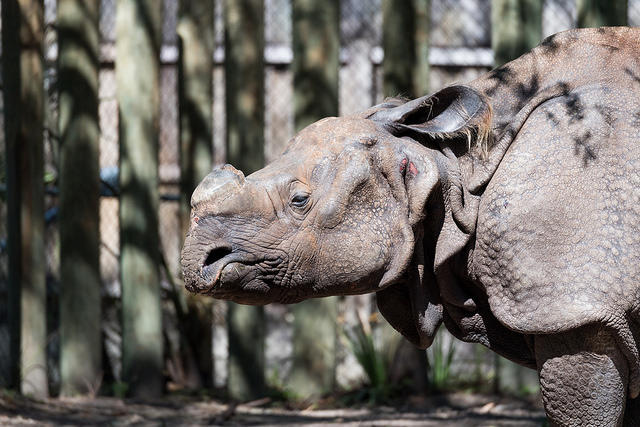New microbes found in a rhino, bird crops and mobile phone screens
Posted on August 24, 2017 by Anand Jagatia
Scientists have identified a new species of bacterium from a rhinoceros. The team isolated the strain from the genital tract of Sani the rhinoceros during a routine microbiological test. They name it Arcanobacterium wilhelmae after Wilhelma Zoo in Stuttgart, where it was found.

Meanwhile, researchers in a wild animal park in China have discovered a novel actinobacterium in the faeces of a golden snub-nosed monkey. The species, Mobilicoccus caccae becomes only the second member of its genus, joining Mobilicoccus pelagius, which was originally isolated from the intestinal tract of a fish.
Many bird species have a ‘crop’ near their throat, which is essentially a pouch where they can store food prior to digestion. A team of microbiologists from the Czech Republic has identified a new thermophilic bacterium from the crop of a hen, Galliscardovia ingluviei. The species was isolated as part of an effort to research the diversity of probiotic bacteria in poultry.
Researchers from Japan and the USA propose the reclassification of a new tick-borne pathogen of humans. The strains can cause ehrlichiosis among patients exposed to ticks, which is a bacterial infection with flu-like symptoms. The new subspecies is Ehrlichia muris subsp. eauclairensis.
Mobile phones go everywhere with us, and their screens are exposed to a wide range of microbes via our fingers and thumbs. Researchers from India have tried to sample the diversity of microbes on people’s phone screens, and during their investigation the team isolated a new bacterial strain, which they aptly name Lysinibacillus telephonicus.
Looking in the environment, researchers from China have isolated Flavitalea antarctica from the Fildes Peninsula in Antarctica, while another team has found the bacterium Rhizobium arenae in the sand of the Mu Us Sandy Land, a desert in Central China. And in Germany, a group has found a novel bacterium in a North Sea harbour, named Phaeobacter porticola. Isolates of this species were able to produce antibiotics, and inhibit the growth of Pseudoalteromonas tunicata.
Lastly, a team from the Republic of Korea has isolated the new bacterial species Parafilimonas rhizosphaerae from the rhizosphere of tomato plant.
The full papers describing these species are available to journal subscribers, but the abstracts are free to read. Articles can also purchased individually with the pay-per-view option.
